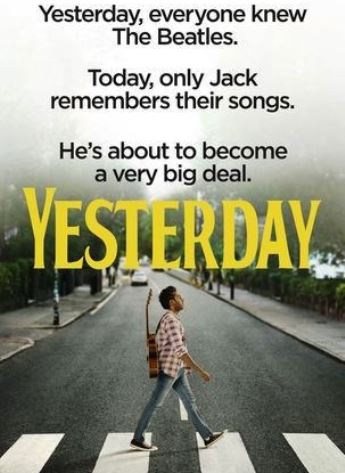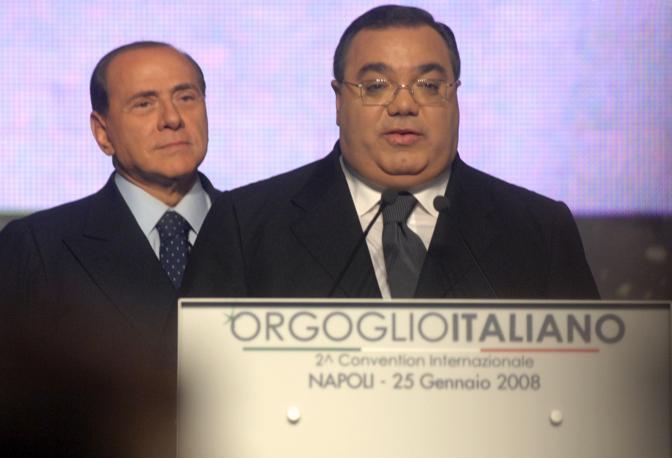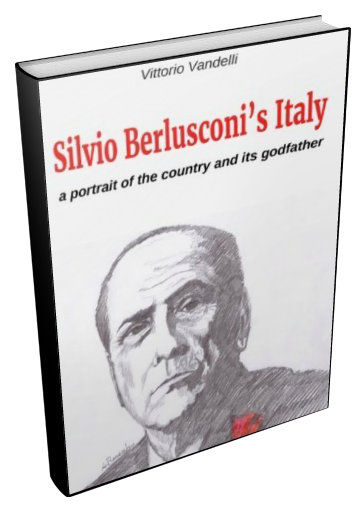[CLICK IMAGE FOR ARTICLE]
Sorry Mr P. Bradshaw, but The Irishman is definitively not Martin Scorsese’s finest film for 30 years. It is a kind of Goodfellas part 2, same narrative technique, use of soundtrack, voice-over, multiple timeline narration and flashbacks. Same actors, looking sometimes like a pantomime of themselves: making them younger by computer technology is like seeing an old man wearing a mask. Even the attempt to link political realities with the fictional story is quite superficial and does not really work, like in The Godfather part 3. Time out review sounds more convincing: Replete with all the gangster gab a Scorsese fan could want, the director’s latest is strongest in its quieter passages, when self-reproach takes its toll. It is indeed a movie of friendship, betrayal and remorse, it is indeed a movie made by an old man and by old stars on their glorious sunset boulevards.
Post Chandler classical noir revisited, with a protagonist with an obsessive-compulsive syndrome that makes him look like a Dustin Hoffman character of the 60s. There is indeed a 60s feeling, of ideological revisitation, mixed with the code of hard-boiled movies. Best noir of the year, recalling almost instantly The Big Sleep or The Maltese Falcon or Chinatown.
 Norton plays Lionel Essrog, the detective with a tic that means he will convulsively yelp disjointed phrases, and jerk his head and grimace as if suddenly suppressing a huge yawn; Norton fabricates these mannerisms with care. But Lionel is also blessed with a superb memory and is good at his job. When his boss, friend and mentor Frank Minna (Bruce Willis) is killed shadowing some scary individuals, his fellow private dicks Tony (Bobby Cannavale), Gilbert (Ethan Suplee) and Danny (Dallas Roberts) are shocked but resigned; Lionel is, however, convinced Frank was on the verge of blowing open a corrupt city hall conspiracy, involving the ethnic cleansing of black people from areas ripe for lucrative redevelopment. Obsessive-compulsive Lionel believes he can piece together the clues to this mystery, involving a ruthless politician (Alec Baldwin), a local malcontent (Willem Dafoe) and a smart community activist (Gugu Mbatha-Raw).
Norton plays Lionel Essrog, the detective with a tic that means he will convulsively yelp disjointed phrases, and jerk his head and grimace as if suddenly suppressing a huge yawn; Norton fabricates these mannerisms with care. But Lionel is also blessed with a superb memory and is good at his job. When his boss, friend and mentor Frank Minna (Bruce Willis) is killed shadowing some scary individuals, his fellow private dicks Tony (Bobby Cannavale), Gilbert (Ethan Suplee) and Danny (Dallas Roberts) are shocked but resigned; Lionel is, however, convinced Frank was on the verge of blowing open a corrupt city hall conspiracy, involving the ethnic cleansing of black people from areas ripe for lucrative redevelopment. Obsessive-compulsive Lionel believes he can piece together the clues to this mystery, involving a ruthless politician (Alec Baldwin), a local malcontent (Willem Dafoe) and a smart community activist (Gugu Mbatha-Raw).
As it is, the biggest ego in Motherless Brooklyn is a man named Moses Randolph. He’s loosely based on Robert Moses, the notorious “master builder’ of mid-century New York whose creation of the suburbs amounted to a form of social cleansing. But the fact that Moses is played by a bullish Alec Baldwin, who impersonates Donald Trump on Saturday Night Live, suggests a more obvious contemporary parallel. Norton insists that this was largely unintentional. https://www.theguardian.com/film/2019/nov/29/edward-norton-and-thom-yorke-the-last-thing-we-wanted-was-for-it-to-get-bloody
And so the long odyssey through the big gaunt city begins, a city depicted in sombre dark greys and browns; an odyssey punctuated by Lionel and his colleagues getting nasty beatings from goons and being carried back to the office covered in bruises and blood… and all this is partly because Norton has taken the decision to change the late 1990s setting of the original novel and backdate it to the 1950s. There are plenty of beautiful, classic automobiles, cleaned and polished to a showroom gleam as such cars tend to be in the movies, and not dirty and scuffed-up the way they would be in real life. https://www.theguardian.com/film/2019/sep/12/motherless-brooklyn-film-review-edward-norton
Acclaimed writer and director Rian Johnson (Brick, Looper, Star Wars: The Last Jedi) pays tribute to mystery mastermind Agatha Christie in KNIVES OUT, a fun, modern-day murder mystery where everyone is a suspect. When renowned crime novelist Harlan Thrombey (Christopher Plummer) is found dead at his estate just after his 85th birthday, the inquisitive and debonair Detective Benoit Blanc (Daniel Craig) is mysteriously enlisted to investigate. From Harlan’s dysfunctional family to his devoted staff, Blanc sifts through a web of red herrings and self-serving lies to uncover the truth behind Harlan’s untimely death. With an all-star ensemble cast including Chris Evans, Ana de Armas, Jamie Lee Curtis, Toni Collette, Don Johnson, Michael Shannon, LaKeith Stanfield, Katherine Langford and Jaeden Martell, KNIVES OUT is a witty and stylish whodunit guaranteed to keep audiences guessing until the very end (rotten Tomatoes).
It works: even if I am more inclined to noir than whodunit, it is one of the best Agatha-Christie-style movies I have seen. Superb Craig, ironically smart, better than his last 007s. The film is also politically conscious, since the Trump-like super-rich household is poisonous in itself while nurse Marta, the young ambiguous doc. Watson figure whose family got to the USA illegally, is the positive character, notwithstanding her dangling position shifting from damsel-in-distress to villain and vice-versa. Narratively it is perfect, with its multiple flashbacks showing the same events from different points of view, a classic in whodunit cinema. They are frequent and masterly handled, put in a complex frame that works in the end: the ‘story’ unfolds with an intermingled ‘plot’ that is a school example of montage. You have to watch it twice to appreciate the structure: once the ‘who did it?’ is over, you have time to think about the setup.
The magic is there. Welcome to Bruce’s barn where all the Western Stars tracks are performed live. The emotion of the boss live is still there, at 70, with a tough unchanged voice, which is a miracle that remains untouched. Bruce created a fictional counterpart of his in the Western loser who unveils his tale in the lyrics, sad, lonely, proud, caught between his loves and affections and the all-American desire to run away, to go West, his main theme throughout his musical career. Enchanting images and existentialist voice-over in between the songs gives the spectator a fictional Bruce, we know it is made-up but we like to believe his words. Great filming and great sound convey the feeling of this apparently different new album which in fact is quintessential Bruce. Keep rocking, young old man!
Quintessential Allen. Back to his early NYC movies where a fascinating New York is the real protagonist, city of dreams and chances and neurosis, but THE CITY. And back to his early protagonists, a Catcher-in-the-Rye young man unsatisfied of everything bourgeois and, of course, of his Tucson soap-and-water fiancè. Comedy of errors and of sliding doors, of humour and old-time jazz, the film works much better than his last comedies. Play it again, Woody.
Lezione di cinema. Nel setting, nei costumi, nelle scene ma anche nella struttura narrativa. Soprattutto una vicenda di grande attualità: il pregiudizio, l’arroganza del potere, la menzogna per mantenere lo status quo, l’indifferenza all’ingiustizia nel nome della ragion di stato, l’ipocrisia, l’ottusità ideologica fanno della vicenda Dreifus un caso di oggi, ed è giusto quindi riproporla ora. Dreifus è un altro ‘pianista’, ma a dargli la caccia non sono i ‘cattivi’, ma i presunti ‘buoni’.
It’s ridiculous and indulgent at all times … Yet there is a weird and heavy backwash of sadness at the end, a kind of melancholy comedown, and I can’t quite decide if that was intentional or not (The Guardian, Richard Curtis’ magical mystery tour of a world without the Beatles).

For my generation, in the wasteland of contemporary music, a Beatlesless world is hard to imagine. Boyle, my age, tries to do it, with a comedy that needs the spectator’s ‘willing suspension of disbelief’ to go through. This is the story of a hopeless singer-songwriter who is the only one in the whole world to remember the Fab Four’s songs; he rises to world fame making them his own tunes, comes across the nasty L.A. music business, and in the end confesses his sin for love’s sake. The same human touch Boyle had for the drop-outs of Trainspotting is here again, in a amor vincit omnia finale which is not the same as a Hollywood trad happy end. As for me, hopeless musician, teacher and pop lover, the identification with the protagonists is all too easy. There is nostalgia indeed, but also that touch of sadness and melancholy the Guardian‘s review points out, and that adds value to a movie worth seeing, no doubt, and not because the Beatles were just entertainers.
Bale brilliantly captures the former vice-president’s bland magnificence in Adam McKay’s entertainingly nihilist biopic (The Guardian).
Ambitious, amusing, but confused portrait of Dick Cheney. The movie works in itself but fails to capture the mastermind behind G.W.Bush’s horror presidency, the violent bloodthirsty politics of the neo-con in the 2000s, the age of pre-emptive wars, of American tortures and of the Patriot Act. If one lived through it as I did, the soft tone of the film is inexcusable for in the end it hides the historical reality.
Van Gogh biopic fades to grey. The visual vibrancy of Julian Schnabel’s rendering of the painter’s last years isn’t matched by his handling of the story (The Guardian).
Boring: redundant and obsessive focus on Van Gogh’s insanity, visions, obsessions and nightmares. I don’t think it makes the great visionary painter justice, his genius and mal du vivre, strictly interlinked, are obscured by the lunacy of the character in the film. Chapeau to Dafoe, but that’s not enough to make a meaningful lasting movie.
“Mary Queen of Scots” explores the turbulent life of the charismatic Mary Stuart (Ronan). Queen of France at 16 and widowed at 18, Mary defies pressure to remarry. Instead, she returns to her native Scotland to reclaim her rightful throne. But Scotland and England fall under the rule of the compelling Elizabeth I (Robbie). Each young Queen beholds her “sister” in fear and fascination. Rivals in power and in love, and female regents in a masculine world, the two must decide how to play the game of marriage versus independence. Determined to rule as much more than a figurehead, Mary asserts her claim to the English throne, threatening Elizabeth’s sovereignty. Betrayal, rebellion, and conspiracies within each court imperil both thrones – and change the course of history (Rotten Tomatoes).
True, but is there any history here or is it just fiction with a forced feminist stance? See here a review from The Observer I agree with.
Based on the worldwide best-selling novel by Simon Winchester, THE PROFESSOR AND THE MADMAN is an extraordinary true tale of madness, genius, and obsession about two remarkable men who created history with the writing of the Oxford English Dictionary. The compilation of the Oxford English Dictionary began in 1857 and was one of the most ambitious, and revolutionary projects ever undertaken. Professor James Murray (Mel Gibson) took on the challenge of creating the most comprehensive dictionary ever compiled, but knew that it would take him and his team over a century to compile all known definitions. However, by “crowd sourcing” the work, that is, by enlisting definitions from people all over the world, the dictionary could be compiled in mere decades. As definitions were collected, the overseeing committee, led by Professor Murray, discovered that one man, Dr. W.C. Minor (Sean Penn), had submitted more than ten thousand words. When the committee insisted on honoring him, a shocking truth came to light: Dr. Minor, an American Civil War veteran, was a convicted murderer and being held at an asylum for the criminally insane. … Gibson is fine; it’s everything else that doesn’t work. … more exciting than reading the dictionary, but not by much. (Rotten Tomatoes).
Very interesting topic but very weak movie: Mad Max is credible as a Victorian professor, Penn is as usual too good and actually plays himself. More the story of an unconventional friendship than the making of the glorious Dictionary.
Peterloo review – grit and brilliance in Mike Leigh’s very British massacre

It was to be a grand day out: a peaceful rally to call for political reform. But the authorities were spoiling for a fight. The Peterloo massacre marked a turning point in our democracy. Click here for the complete essay.
The film runs smoothly, historically very accurate, the class clash very neatly pointed out without becoming a pamphlet. The climactic scene of the massacre is cinematographically perfect, a mise en scène of a kind of event we would see many times in the next century, the police and the army as weapons of mass repression. Long live that revolt in our memory!
… After spending a tense beach day with their friends, the Tylers (Emmy winner Elisabeth Moss, Tim Heidecker, Cali Sheldon, Noelle Sheldon), Adelaide and her family return to their vacation home. When darkness falls, the Wilsons discover the silhouette of four figures holding hands as they stand in the driveway. Us pits an endearing American family against a terrifying and uncanny opponent: doppelgängers of themselves… (Rotten Tomatoes). (Doppelgängers: an apparition or double of a living person, Mid 19th century from German, literally ‘double-goer’).
Asked who she and her fellow-invaders are, she replies, “We’re Americans.” … That is the most frightening line in the film. It marks the point at which Peele, with great deliberation, steps beyond the confines of the horror flick. He did the same in “Get Out” (2017), but “Us” travels further and deeper, with a more resolute sense of adventure. The indictment of racial prejudice in the earlier movie was blistering stuff, but “Us” spares nobody, regardless of color, age. … The doubles in “Us,” though, are a hundred times harsher, craving payback for having been tamped down. They represent the nation’s id, or, in the profoundest sense, its underclass, and Marxists and Freudians alike will have years of fun with this movie. … “Us” is political filmmaking of the most spirited sort, and it sets up quite a fight: the Hydes come to visit the Jekylls, and the Jekylls hit back. Whom you cheer for, in the long run, is up to you. (The New Yorker, best review, in full here).
Scary movie, of course, but not just horror. Not only horror, here the genre is used to visually represent the Jekyll’s side of the American – Western – civilization, with its class gaps, its class rage and its sneaking violence everywhere: that is very horrific. Marxist movie? Let’s not be foolish…
Joaquin Phoenix and John C Reilly offer plenty of odd-couple chemistry in this enjoyably off-beat and heartfelt western. (Time Out.) From acclaimed director Jacques Audiard and based on the novel by Patrick deWitt, THE SISTERS BROTHERS is a reimagining of the cinematic Western as a dangerous, witty, and emotionally cathartic exploration of what it means to be a man. It is 1851, and Charlie and Eli Sisters (Joaquin Phoenix and John C. Reilly) are both brothers and assassins, boys grown to men in a savage and hostile world. They have blood on their hands: that of criminals, that of innocents… and they know no state of existence other than being gunmen. The older of the two, introspective Eli (Reilly) rides hard with his younger sibling yet dares to dream of a normal life. The younger of the two, hard-drinking Charlie (Phoenix) has taken charge with gusto as lead man on the duo’s assignments. Each increasingly questions, and quibbles with, the other’s methods. The Sisters brothers find themselves on a journey through the Northwest, bringing them to the mountains of Oregon, a dangerous brothel in the small town of Mayfield, and eventually, the Gold Rush land of California – a journey that will test the deadly family ties that bind. But, can it also be the path to rediscovering what remains of their humanity? THE SISTERS BROTHERS also stars Jake Gyllenhaal as learned scout John Morris and Riz Ahmed as fugitive chemist Hermann Kermit Warm. (Rotten Tomatoes).
When it comes to Westerns, my heart leaps up, but when it comes to non-American Westerns my mind tends to be suspicious – apart from Leone’s immortal (even if often childish) Spaghetti Westerns. Here, instead, the French approach to this quintessentially American genre works: riding tough guys, violence and murder, Western skies, the prairie and the wilderness follow the rules, but the zoom-in into the historical background and the round characters betrays a European touch and sensibility. Villains and good guys are portrayed in their humanity, in their contrasting aspects, and come around as human being in the end. Indeed a heartfelt Western. The best of these last years together with Hostiles, an all American niche Western about the hate/love relationship of palefaces and redskins – see my post:
Hostiles: if you like classic Westerns, love and hate J. Wayne in The Searchers, don’t miss it.
We’re presented with a familiar set-up: aliens have invaded Earth leading to destruction, division and plenty of dust. But unlike the majority of similar films that have come before, we’re then presented with an idea of what comes after. What if aliens stuck around? What if an uneasy arrangement was made with Earth’s governing bodies? And what if the invaders were now seen as the main legislative force whose presence had actually led to a statistically safer society? It’s a fascinating conceit and one that raises a string of intriguing questions, some of which the film answers with skill. (The Guardian)
Hard as it is for me to stay away from SF movies, I often get let down by pseudo dystopias of the most stereotyped kind. Indeed Captive State presents a familiar set-up, but the aliens’ agreement with the governing bodies, which gives birth to a repressive society, is quite new and intriguing. Metaphorical too, of course: control and repression create a fake safer society, a kind of A. Huxley’s Brave New World, in which social stability erases freedom and free will (see my post here). The subsequent rebellion and the ambiguous ending belong to a traditional plotline, but the raised questions are intriguing, I do agree with the reviewer.
Realizzato a partire da immagini d’archivio e da testimonianze, Santiago, Italia racconta i mesi che seguirono il golpe del dittatore che mise fine al sogno democratico di Salvador Allende. Il film mette l’accento sul ruolo encomiabile dell’ambasciata italiana basata a Santiago, che diede rifugio a centinaia di oppositori del regime, permettendogli di raggiungere l’Italia. (mymovies.it).
Una sola considerazione che nasce spontanea vedendo questo documentario in cui lo stile di Moretti si vede benissimo: sembrano passati anni luce dagli anni settanta, quando accogliemmo gli espatriati cileni con affetto e facemmo di tutto per integrarli. Le testimonianze ci raccontano dell’Emilia di allora come la terra più accogliente e i loro ringraziamenti sono spesso commoventi. Un’ultimo pensiero politicamente scorretto: quando ero bambino e mi volevano mettere paura, mi dicevano che arrivava l’uomo nero; gli espatriati cileni erano tutti bianchi e neo-latini, nell’inconscio collettivo di allora penso questo fatto abbia aiutato. Tutto questo senza alcuna giustificazione per l’odioso vento xenofobo che spira così forte oggi.














 The book "Silvio Berlusconi's Italy" is
The book "Silvio Berlusconi's Italy" is 